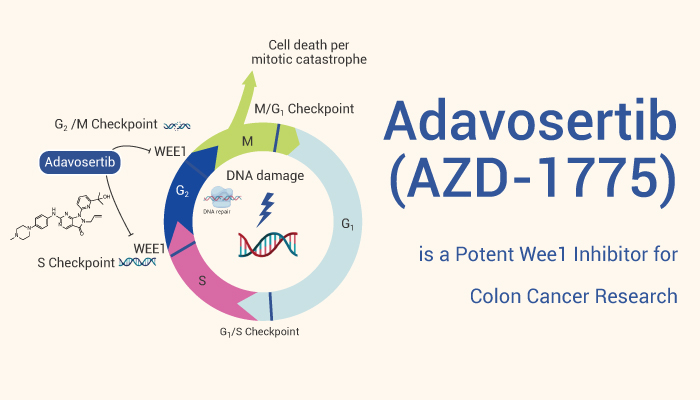The regulation of cell size is critical to ensure the functionality of a cell. Besides environmental factors such as nutrients, growth factors and functional load, cell size is also controlled by a cellular cell size checkpoint. Wee1 is a component of this checkpoint. It is a nuclear kinase belonging to the Ser/Thr family of protein kinases in the fission yeast Schizosaccharomyces pombe (S. pombe). Wee1 can influence the size of the daughter cells. Loss of Wee1 function will produce smaller than normal daughter cell, because cell division occurs prematurely. The Wee1 kinase family consists of three serine/threonine kinases sharing conserved molecular structures and encoded by the following genes: Wee1, PKMYT1, and Wee1B.
In eukaryotic somatic cells, Wee1 and PKMYT1 play a key role in cell cycle regulation. Their role as regulators is crucial during normal cell cycle progression and in response to DNA damages, as part of the DNA damage response (DDR) pathways. Similarly, Wee2 regulates cell cycle progression and, in particular, meiosis. Briefly, Wee2 plays a dual regulatory role in oocyte meiosis by preventing premature restart prior to ovulation and permitting metaphase II exit at fertilization.
Adavosertib (AZD-1775; MK-1775), a potent Wee1 inhibitor, is an experimental anti-cancer drug candidate.
Adavosertib exhibits potential antineoplastic sensitizing activity. Adavosertib enhances the cytotoxic effects of 5-FU in p53-deficient human colon cancer cells. Besides, Adavosertib inhibits CDC2 Y15 phosphorylation in cells. And it abrogates DNA-damaged checkpoints induced by 5-FU treatment. Adavosertib also causes premature entry of mitosis determined by induction of Histone H3 phosphorylation. Meanwhile, Adavosertib abrogates the radiation-induced G2 block in p53-defective cells but not in p53 wild-type lines. Moreover, the combination of NSC 613327 with Adavosertib produces robust anti-tumor activity. And it remarkably enhances tumor regression response (4.01 fold) compared to NSC 613327 treatment in p53-deficient tumors.
All in all, Adavosertib is a potent Wee1 inhibitor with anti-cancer activity.
References:
[1] Rorà AGL, et, al. J Hematol Oncol. 2020 Sep 21;13(1):126.
[2] Hirai H, et, al. Cancer Biol Ther. 2010 Apr 1;9(7):514-22.
